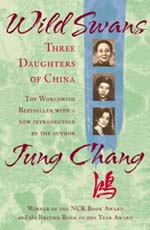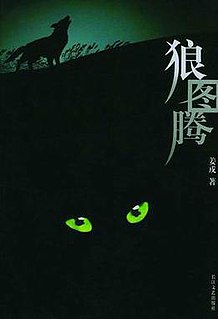 W
WThe Bathing Women is a novel written by Chinese author Tie Ning and published in Chinese in 2000, translated into English in 2012. The Bathing Women focuses on the lives and personal growth of several characters as they live in the turbulent times of The Cultural Revolution and the economic boom of the 1980s. The plot focuses on several feminist themes such as gender inequality, misogyny and sexual liberality.
 W
WBronze and Sunflower is a Chinese children's novel written by Cao Wenxuan and was first published in 2006. The novel is set in the wetlands of northern Jiangsu province, China, during the 1960s and 1970s Cultural Revolution. It is a story of friendship between Bronze, a mute peasant boy, and Sunflower, the young daughter of an artist sent to a May Seventh Cadre School.
 W
WA Dictionary of Maqiao is a novel written by Chinese writer Han Shaogong. It was first published in 1996 and was translated into English by Julia Lovell in 2003. Yazhou Zhoukan selected it as one of the top 100 greatest Chinese novels in the 20th century.
 W
WThe Dragon's Pearl is the autobiography written by Sirin Phathanothai telling her experiences growing up in the 1950s and 1960s among the leaders of China.
 W
WEnglish (英格力士) is a 2004 Chinese coming-of-age novel by Wang Gang, about a boy growing up during the Cultural Revolution in remote Ürümqi, home to many political exiles including the boy's intellectual parents. English has been translated into English and many other languages.
 W
WThe Execution of Mayor Yin is a 1978 collection of short stories by Chen Ruoxi, based on her experiences in Mainland China during the 1960s and 1970s before she came to Taiwan.
 W
WA Leaf in the Bitter Wind is the 1997 personal memoir of author Ting-Xing Ye's life in China from her birth in Shanghai to eventual escape to Canada in 1987.
 W
WLife and Death in Shanghai is an autobiography published in November 1987 by Yao Nien-Yuan under the pen name Nien Cheng. Written in exile in the United States, it tells the story of Cheng's arrest during the first days of the Cultural Revolution, her more than six years' confinement, release, persecution, efforts to leave China, and early life in exile.
 W
WRed Azalea is a memoir of Chinese American writer Anchee Min. It was written during the first eight years she spent in the United States, from 1984 to 1992, and tells the story of her personal experience during the Cultural Revolution.
 W
WRed Scarf Girl is a historical memoir written by Ji-li Jiang about her experiences during the Cultural Revolution of China, with a foreword by David Henry Hwang.
 W
WRemembrance of Earth's Past is a science fiction trilogy by the Chinese writer Liu Cixin, but Chinese readers generally refer to the series by the title of its first novel, The Three-Body Problem (Chinese: 三体; pinyin: Sān Tǐ; lit. 'Three-Body').
 W
WRevolution Is Not a Dinner Party is a work of historical fiction written by Ying Chang Compestine and published in 2007. The story is set at the end of the Cultural Revolution in Wuhan, China. The novel is about a young girl from an upper-class family facing persecution and other challenges brought upon the upper class living in communist China.
 W
WScarlet Memorial: Tales of Cannibalism in Modern China is a book of reportage literature by the Chinese novelist Zheng Yi. Zheng and a group of writers under the joint pseudonym "T. P. Sym" translated and abridged it from the Chinese work 红色 纪念碑 Hongse jinianbei. Zheng uses local government documents, eye-witness accounts and confessions to describe the factional violence and even cannibalism that occurred in the Guangxi Massacre during the Cultural Revolution (1966–1976).
 W
WThe Three-Body Problem is a science fiction novel by the Chinese writer Liu Cixin. The title refers to the three-body problem in orbital mechanics. It is the first novel of the Remembrance of Earth's Past trilogy, but Chinese readers generally refer to the whole series as The Three-Body Problem. The second and third novels in the trilogy are The Dark Forest and Death's End.
 W
WWild Swans: Three Daughters of China is a family history that spans a century, recounting the lives of three female generations in China, by Chinese writer Jung Chang. First published in 1991, Wild Swans contains the biographies of her grandmother and her mother, then finally her own autobiography. The book won two awards: the 1992 NCR Book Award and the 1993 British Book of the Year. The book has been translated into 37 languages and sold over 13 million copies.
 W
WWolf Totem (simplified Chinese: 狼图腾; traditional Chinese: 狼圖騰; pinyin: Láng Túténg is a 2004 Chinese semi-autobiographical novel about the experiences of a young student from Beijing who finds himself sent to the countryside of Inner Mongolia in 1967, at the height of China's Cultural Revolution. The author, Lü Jiamin, wrote the book under the pseudonym Jiang Rong; his true identity did not become publicly known until several years after the book's publication.